Translating Digital Welcome Books: Hosting International Guests with Ease
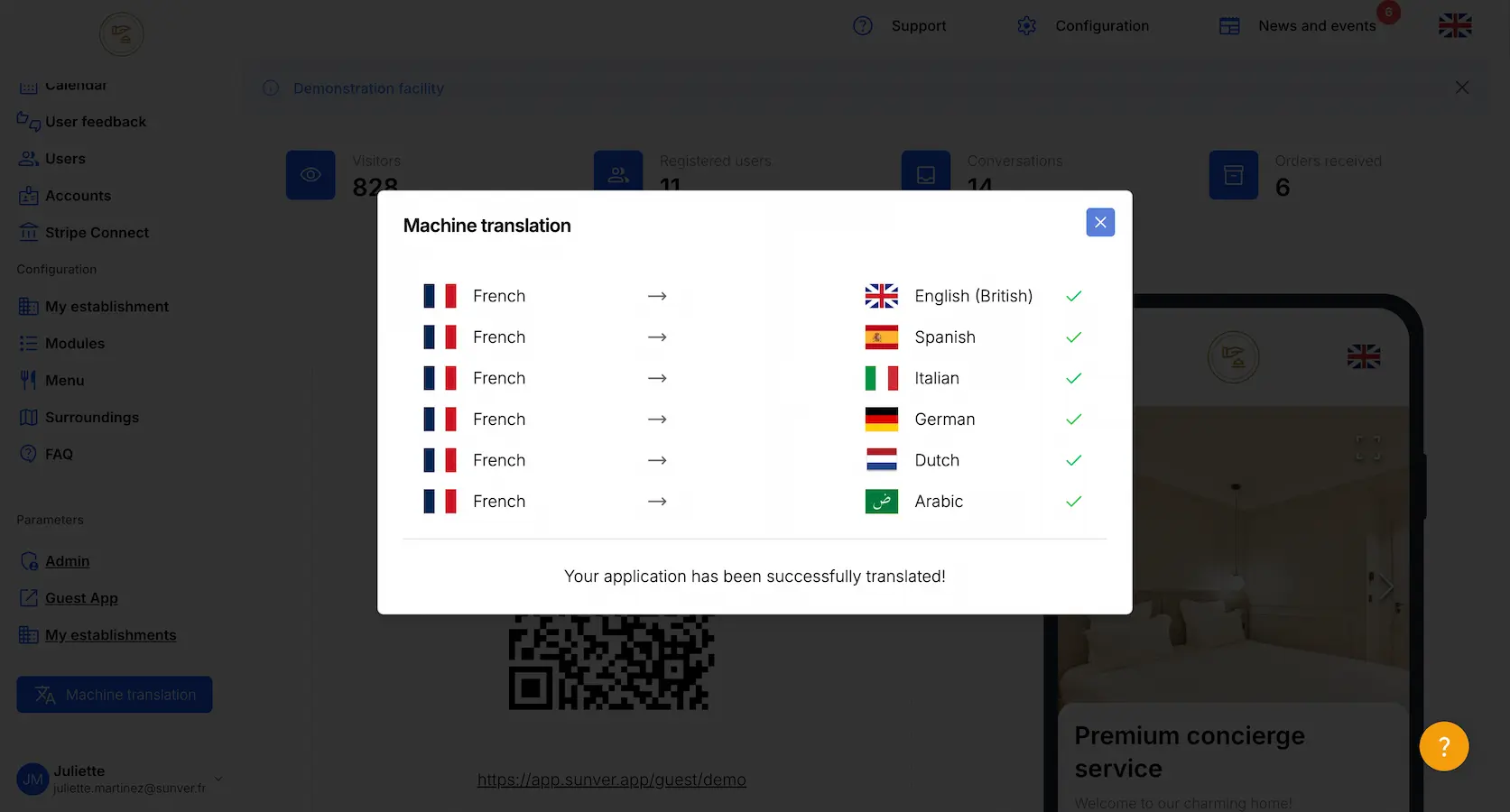
Introduction
In the short-term rental sector, and in the hospitality industry more generally, the diversity of travelers’ nationalities can make communication challenging. A misunderstood instruction or an untranslated piece of information can easily lead to repeated questions, mistakes, or even dissatisfaction. To address these situations, digital welcome books now offer automatic translation, instantly adapting stay information to the traveler’s language.
How does digital welcome book translation work?
Traditionally, translating a welcome book meant creating multiple paper or PDF versions and reprinting them with every update, a process that was slow, costly, and unsustainable.
A digital system simplifies this:
- only one version of the welcome book is written,
- the guest’s smartphone language is automatically detected,
- content appears instantly in the right language,
- every update is reflected in real time across all languages.
This eliminates repeated explanations for the host. Wi-Fi details, appliance guides, rules, or local tips are immediately understandable in each traveler’s language.
The reliability of automatic translation
Modern translation systems are powered by artificial intelligence and enriched linguistic databases. Unlike older, less accurate tools, they use models trained on millions of texts to deliver natural and fluent translations.
Context recognition: the global meaning of a sentence is analyzed to choose the most relevant word (ex “rules” translated as “règles” instead of “lois”).
Continuous improvement: algorithms refine over time through new data.
Wide language coverage: English, Spanish, German, Italian, Portuguese, Chinese, Arabic, and many more, sometimes over 20 languages.
Consistency: every update can be translated, ensuring a coherent experience across all languages.
The result: reliable, easy-to-understand information without extra effort from the host or manager.
Why translate a welcome book in short-term rentals?
A paper binder or a bilingual PDF is no longer enough. Guests now come from a wide variety of countries, Spain, Germany, Italy, China, the United States, and expect seamless, personalized communication.
Failing to translate brings several risks:
- Frequent questions about basics (Wi-Fi, check-out, appliances).
- Lost upsell opportunities due to lack of understanding.
- Mixed or negative reviews caused by unclear communication.
On the other hand, a translated welcome book directly improves the guest experience, simplifies management, and strengthens professionalism. Clear information also leads to better online ratings, higher retention, and repeat bookings.
The multilingual chatbot: a key complement
A multilingual digital welcome book covers most needs, but some guests still have specific questions. This is where the multilingual chatbot comes in, integrated directly into the welcome book.
Using artificial intelligence, the chatbot analyzes content and automatically answers frequent questions in the guest’s language. For example, a Spanish guest can ask “¿A qué hora es el check-out?” and receive an instant response in Spanish, without contacting the host.
Advantages of a multilingual chatbot:
Fewer requests: fewer calls, texts, or emails.
24/7 availability: support at any time, even outside reception hours.
International accessibility: guests interact in their native language, avoiding misunderstandings.
Better reviews: satisfied, autonomous guests are more likely to leave 5-star feedback.
Together, the multilingual welcome book and chatbot create a complete solution: instant information and personalized interaction in any language.
Case study: property manager with multilingual digital welcome book
Before: a property management company handling 30 apartments used a bilingual (French/English) paper book. Misunderstandings persisted: some thought “reserved parking” was free, others misread pool rules, or failed to understand appliance instructions. Even safety guidelines were sometimes unclear.
After switching to a multilingual digital welcome book:
- Safety instructions and house rules were understood immediately.
- Foreign guests booked extra services more easily thanks to clear translations.
- Reviews highlighted clarity and simplicity.
The results: fewer misunderstandings, more upsells, and better ratings. Average reviews rose from 4.3 stars to 4.7 stars within a few months.
Best practices for an effective multilingual welcome book
Even with high-quality automatic translation, a few practices canimprove results:
- Keep sentences short and clear.
- Avoid jargon or very local expressions.
- Use universal visuals (icons, explainer videos).
- Regularly test the experience in different languages.
Automatic translation as a strategic tool in hospitality
In today’s competitive global market, automatic translation can play an important role in hospitality.
- Tourism internationalization: with travelers from diverse markets (Spain, Germany, the US, China…), a multilingual digital welcome book helps ensure accessibility.
- Professionalization of hosts and managers: providing clear, translated information supports consistency and clarity in guest communication.
- Competitive differentiation: while many still rely on paper or bilingual PDFs, multilingual digital welcome books offer a more comprehensive solution for international audiences.
Translating a digital welcome book is less about marketing positioning and more about ensuring accurate communication, accessible information, and smoother management in a global context.
Conclusion
By 2025, limiting a welcome book to French or English means losing part of the potential guest base. Automatic translation breaks down language barriers, simplifies communication, and turns the digital welcome book into a growth driver for hospitality businesses.
Discover for free how to create a digital welcome book thatcan be translated automatically, making it a multilingual tool that improves communication and supports both upsell opportunities and guest feedback.
Much more than a welcome guidebook
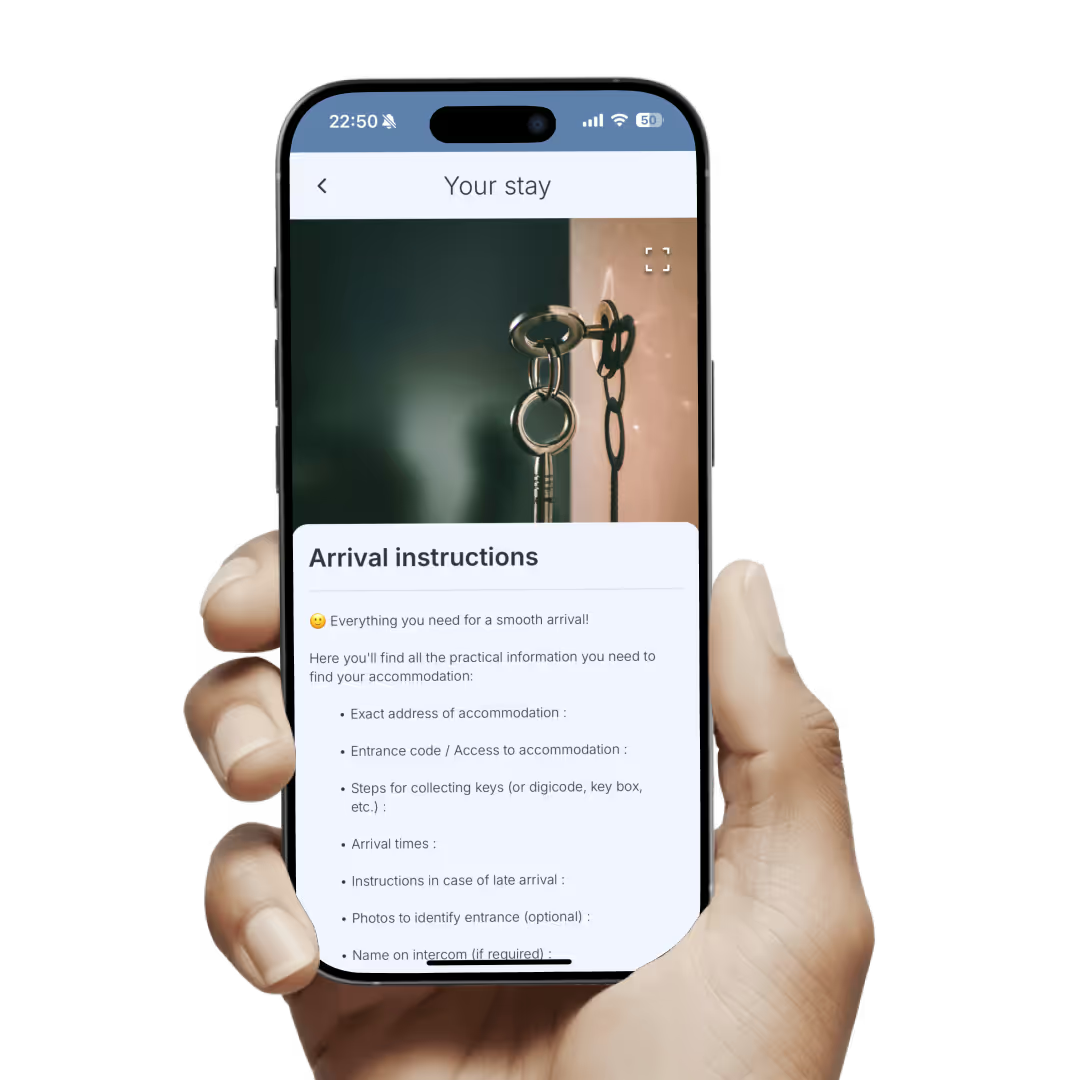
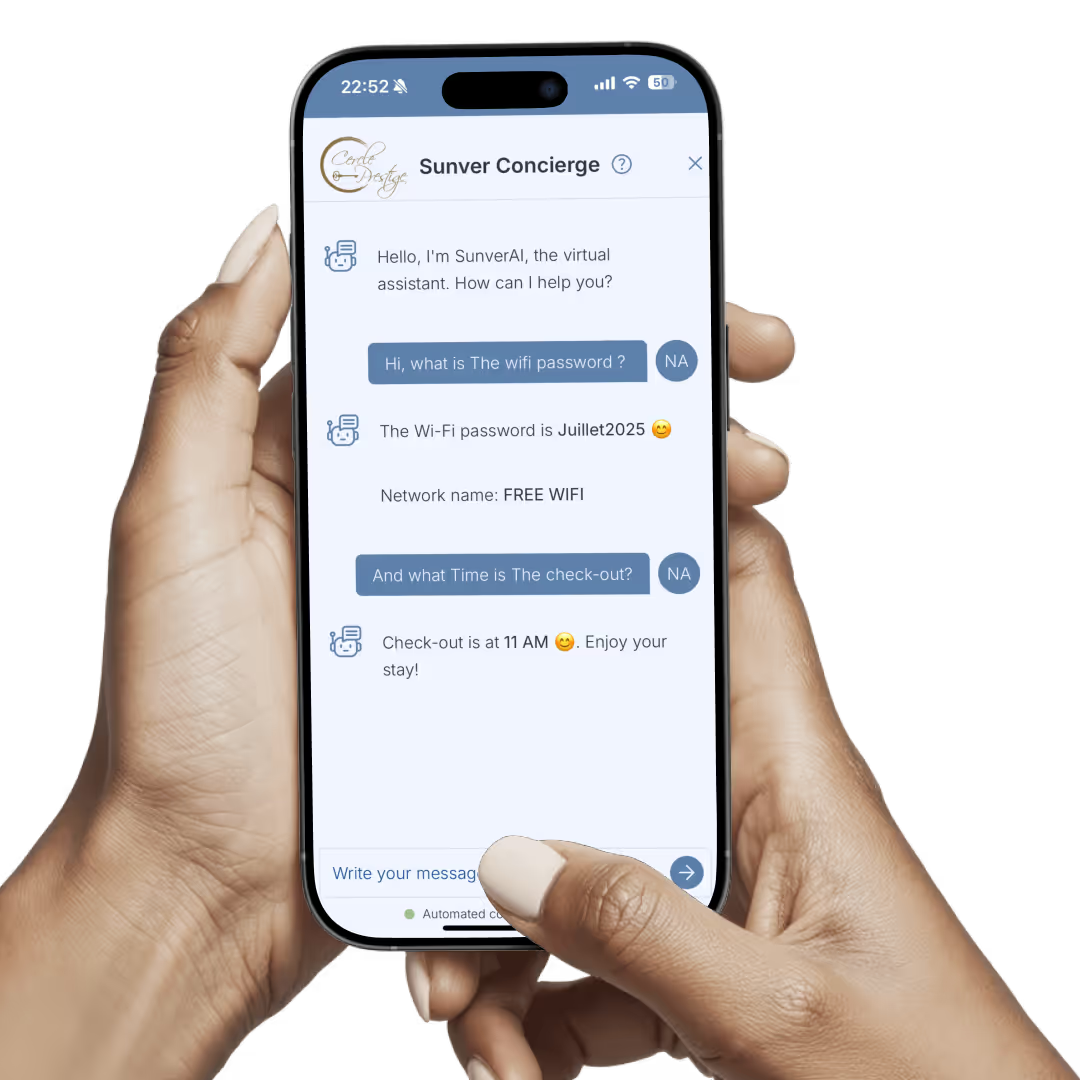
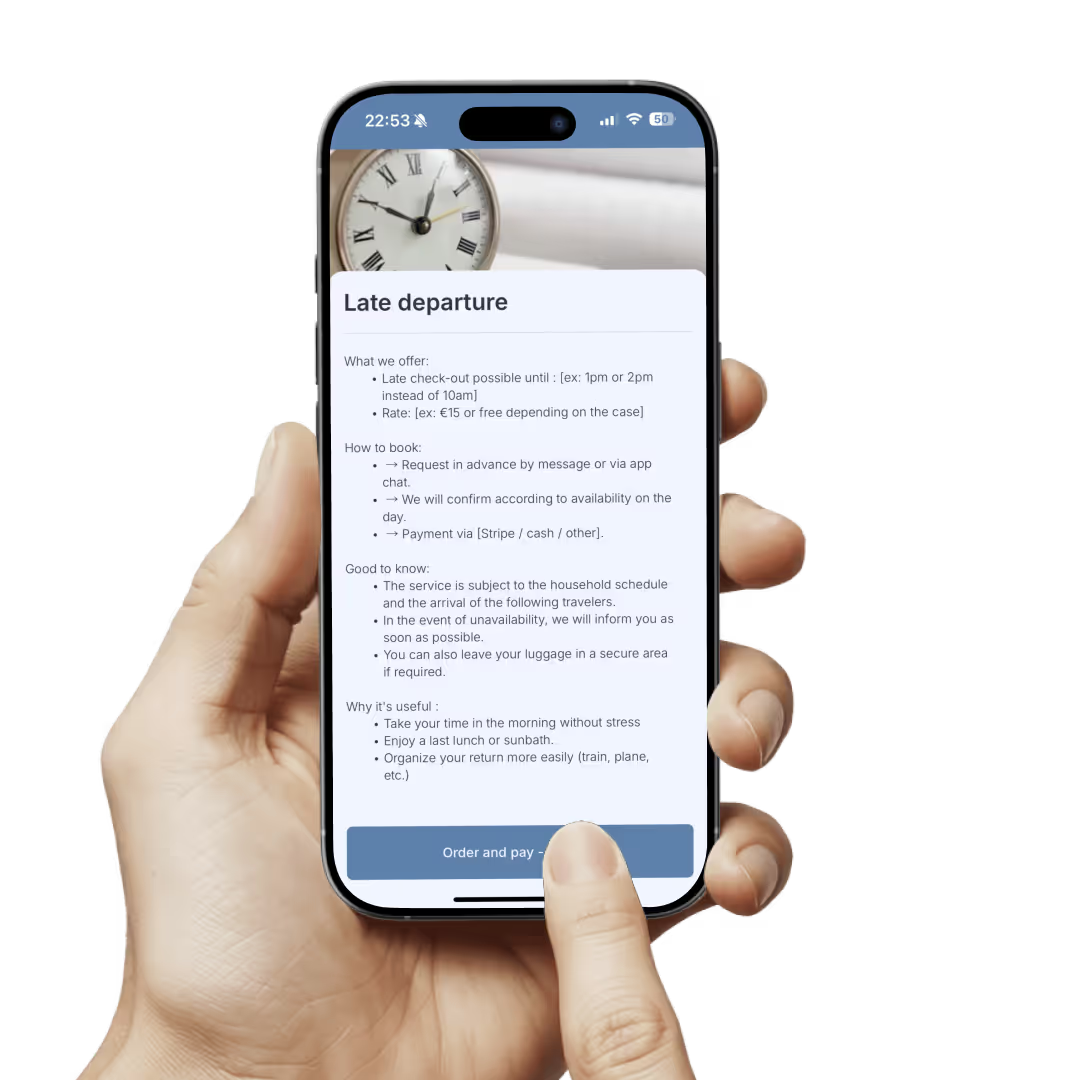
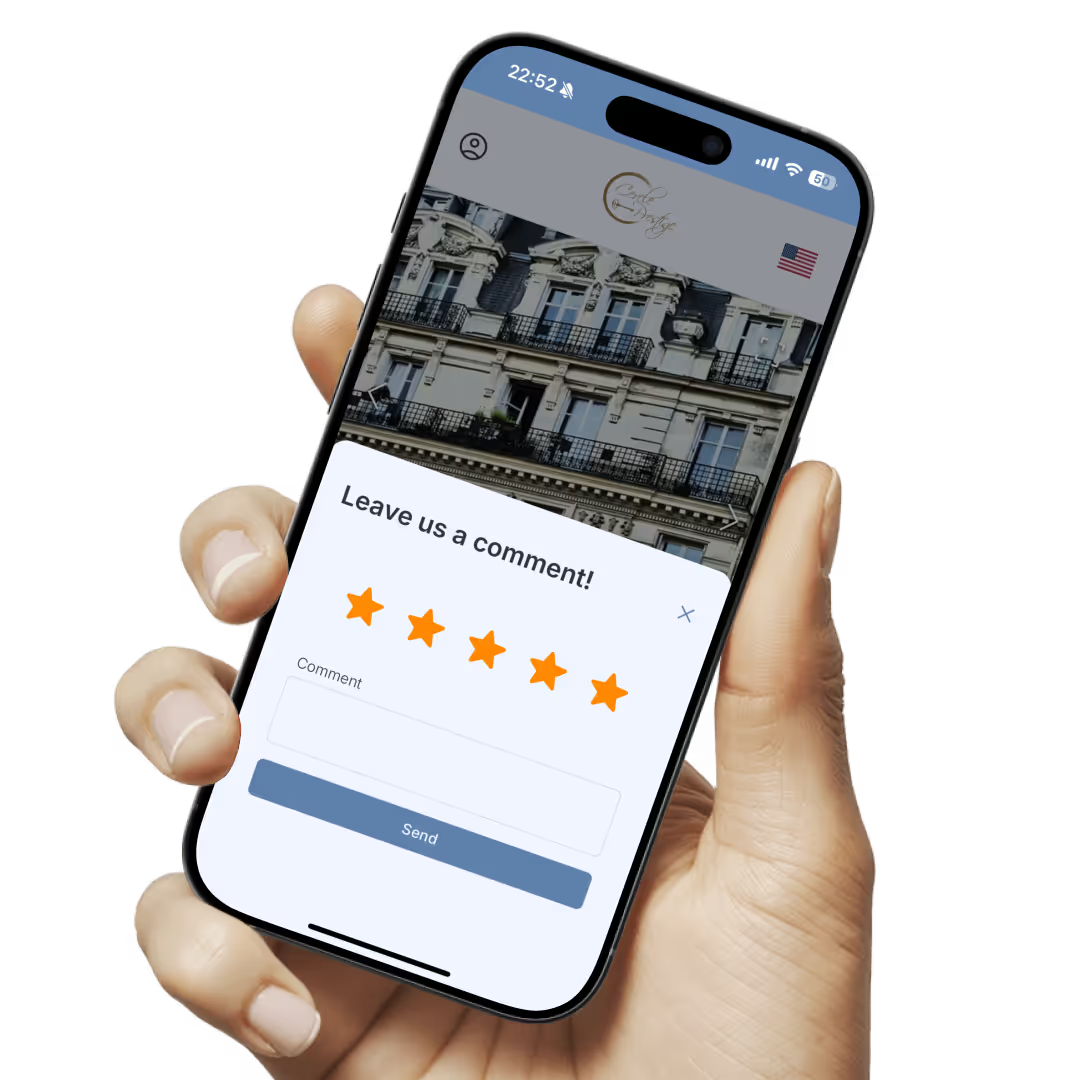
Frequently asked questions
1. Send the link directly after booking or during the stay through your automated messages.Provide
2. QR code displays inside your accommodation so guests can scan and access the guidebook instantly.
You can also print your display for free from your Sunver dashboard or order physical QR code supports directly from our website.
